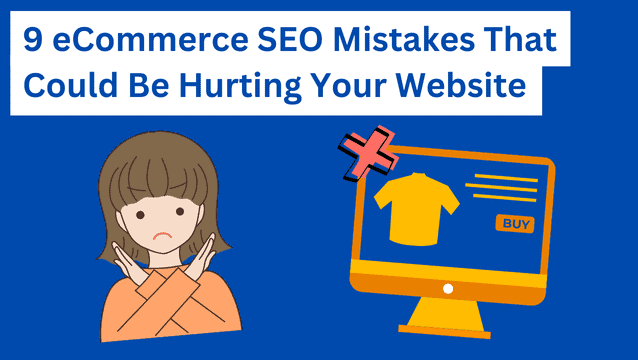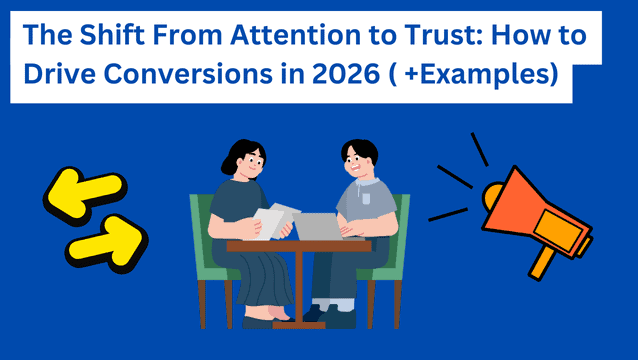If your local business isn’t ranking in Google Search, you’re missing out on easy customers.
Even a perfect Google Business Profile won’t help without strong local links.
That’s because your profile shows Google who you are. But backlinks prove that other sites vouch for you.
Link building for local SEO fills the gap. Backlinks from relevant, authoritative websites act as credibility signals. They show Google your business has a real presence and trust within the community.
The more of these signals you build, the stronger your chances of appearing in top local search results and Map Packs.
Let’s take a closer look at this below. 👇
Highlights
- Local SEO link building focuses on acquiring geographically relevant backlinks. This helps improve Map Pack and local organic rankings.
- High-quality local links signal trust and authority to both Google and users.
- Local link building sources include chambers of commerce, local media, directories, sponsorships, and hyper-local content.
- Monitoring competitors and maintaining NAP consistency supports strategic link acquisition.
- Effective local link building encourages targeted traffic, leads, and long-term visibility in your geographic market.
What is link building for local SEO?
Local SEO link building focuses on acquiring backlinks for geographically targeted searches.
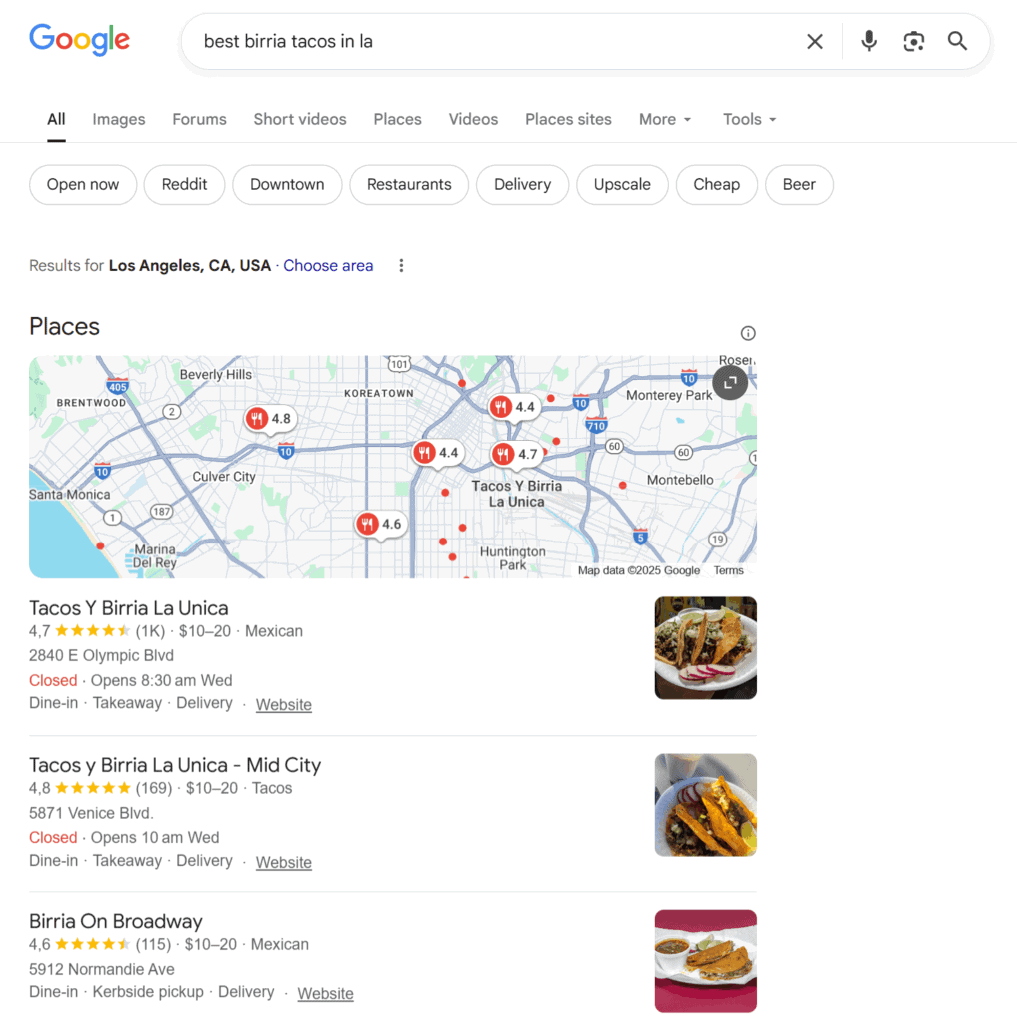
The goal is to prove trust and relevance in your specific area.
Google determines the local authority using several factors:
- Engagement and behavioral metrics in your local ecosystem.
- Proximity and relevance signals.
- Local citations and backlinks.
For example, if you run a coffee shop in Dallas, a backlink from a Dallas lifestyle blog matters more than one from a national food site.
(We’ll discuss local seo ranking factors in a bit.)
Why link building for local SEO matters
Nearly a quarter of consumers say that 41-60% of their searches are local-specific (Source: BrightLocal).
Some of the top reasons local link building matters include:
- Google Business Profile and local map pack dominance. Links from local, authoritative sources influence Map Pack rankings. (That’s when you show up in Google Map results.) Without a strong local link profile, you can’t dominate local SERPs even if your on-page SEO is perfect.
- AI and semantic search integration. Google now evaluates contextual relevance and topical authority alongside location signals (Source: SEO Weekly News). Local backlinks get interpreted semantically. This means you can also show up in AI search results with the right local backlink strategy!
- User trust and conversions. Local backlinks build offline credibility. They encourage more calls, visits, and leads. Links from respected local organizations signal legitimacy to both users and search engines.
Niche-specific, location-based relevance is key.
Let’s look at this more below.
Local SEO ranking factors to know
Links from geographically relevant sites carry more weight than generic links from random sites. Here are the most important local SEO ranking factors you need to know:
Google Business Profile (GBP) signals
- Primary category: This is the most significant factor. Make sure to accurately select your primary category — so your business appears in relevant local searches.
- Hours of operation: Keep accurate and up-to-date business hours. This helps Google display your business appropriately in local search results.
- Photos and videos: Regularly update your visual content. This enhances user engagement and improves local search visibility.
- Business name: Include relevant keywords for a slight ranking advantage. Follow Google’s guidelines to avoid penalties.
- NAP consistency: Maintain a consistent Name, Address, and Phone across all online platforms.
Review signals
- Review diversity: Encourage reviews across multiple platforms to promote inclusivity. This helps strengthen your online reputation and local search performance.
- Review quantity and quality: Having a higher number of positive reviews can boost your business’s credibility and local ranking.
- Review velocity: Aim for steady accumulation of reviews. Sudden spikes may appear suspicious to Google.
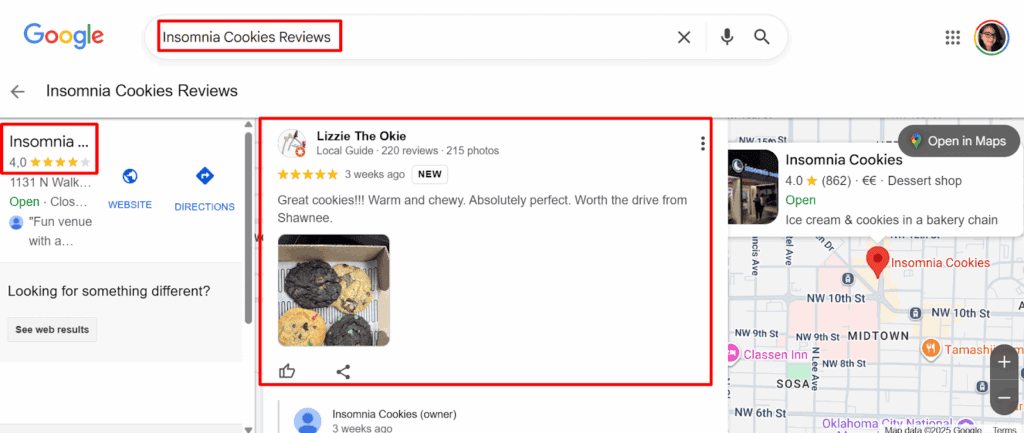
On-page signals
- Keyword optimization: Incorporate relevant local keywords in titles, meta descriptions, and content. This helps Google understand your business offerings.
- Structured data markup: Use schema.org markup, such as LocalBusiness. It gives Google explicit information about your business.
- Mobile optimization: Make sure your website is mobile-friendly. Most local searches occur on mobile devices.
Link signals
- Local backlinks: Get backlinks from reputable local websites. This enhances your business authority and local search rankings.
- Relevance and trustworthiness: Attract links from relevant and trusted sites in your niche.
Behavioral signals
- Click-through rate (CTR): A higher CTR from local search results indicates to Google that your business is relevant to user queries.
- User engagement: Metrics, such as time spent on your site and bounce rate, influence local search rankings.
Citation signals
- Local citations: Get listed in local directories and platforms. This improves your brand visibility in local search results.
- Citation consistency: Make sure your business information is uniform across all citations.
Personalization signals
- Location data: Google uses user location to provide personalized local search results. This impacts your local rankings.
- Search history: Users’ past search behavior can influence the local results they see, which affects visibility.
Link building for local SEO: Tested techniques and strategies
Here are the top methods that strengthen local presence while also signaling credibility to Google.
1. List your business in local directories
Start with high-quality local directories. (For example, Yelp, Yellow Pages, niche-specific directories, and city-focused listings.)
These links signal trust to Google and guide customers directly to your business.
Why it works: Google uses directory citations to confirm business information and location. Consistent Name, Address, Phone (NAP) data across all directories strengthens local ranking signals.
Example: A boutique law firm in Chicago benefits from the Illinois State Bar Association directory and a city legal portal. Accurate listings improve both its organic rankings and local credibility.
Once your business appears in directories, you can leverage more local authority signals.
Of course — make sure to also have a strong and well-optimized Google Business Profile. Keep your contact data, hours, and address up to date. (85% of consumers say contact information and opening hours are an important factor when researching local businesses. Source: BrightLocal)

2. Join chambers of commerce and local associations
Next, focus on chambers of commerce and professional associations. Membership provides valuable backlinks through directories, event pages, and partner profiles.
Why it works: Links from recognized local institutions carry strong trust signals. Google interprets them as endorsements within a community.
Example: A marketing agency joins the New York Chamber of Commerce and secures a directory link — and opportunities for newsletter guest posts. This boosts its authority and qualified local traffic.
3. Secure local sponsorships and partnerships
Another powerful tactic is sponsoring local events, charities, or youth programs. These partnerships generate backlinks while increasing community presence.
Why it works: Hyper-local sponsorships produce links from event pages, press coverage, and community calendars. These links signal relevance to Google and local audiences.
Example: A neighborhood gym sponsors a city 5K marathon, gains links on the event page, local news sites, and social media. The result: Backlinks, local mentions, and engagement.
4. Pitch local PR and media
Local press links increase authority.
Send press releases, news stories, or case studies to newspapers, community blogs, and city portals.
Why it works: Google treats backlinks from authoritative local publications as trust signals. Media coverage also influences offline traffic, calls, and visits.
Example: A bakery in Portland pitches a “Holiday XL Cookie Guide.” This secures backlinks from newspapers and blogs and attracts walk-in customers.
5. Contribute guest posts to local blogs
Target city-focused blogs, industry publications, or local business sites. Use anchor text that matches your services and local keywords.
Why it works: Contextually relevant anchor text reinforces topical authority and geographic relevance. Google rewards content demonstrating local expertise.
Example: A Seattle IT consultant writes a cybersecurity guide for a local tech blog. They include “Seattle cybersecurity solutions” in the title. This helps earn backlinks and drives qualified traffic.
This is one of the main ways we help clients with local SEO.
6. Produce geographically relevant content
Create city-specific content that attracts links from local organizations, bloggers, and forums.
Think guides, lists, or how-to resources.
Why it works: Hyper-local content encourages sharing among local sites. It signals relevance beyond directories.
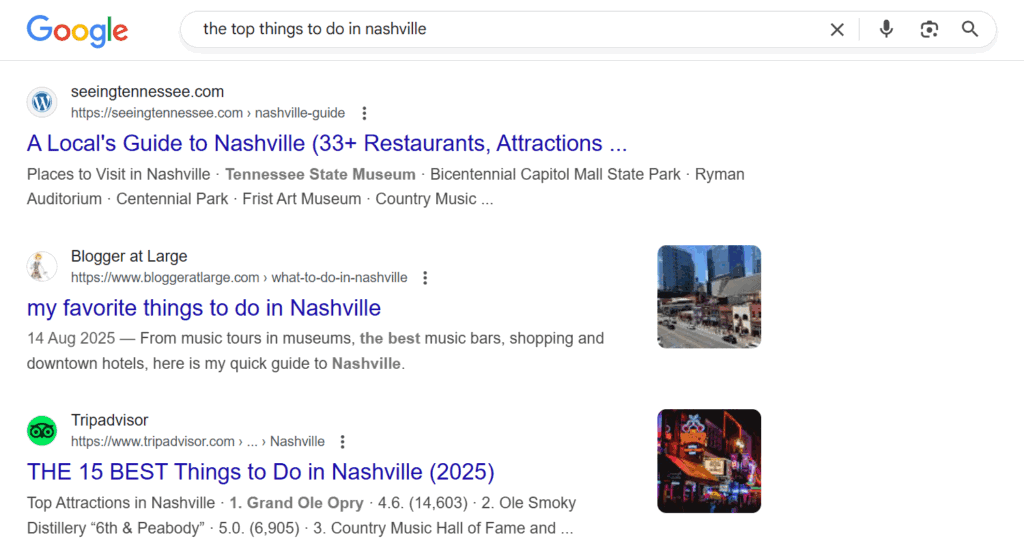
Example: “Top 10 Interior Designers in Austin.” Or “How Austin Residents Reduce Home Energy Costs.” These could earn backlinks from news sites, forums, and industry partners.
7. Provide reviews and testimonials
Offer testimonials to local suppliers, partners, or vendors. This helps generate backlinks when the company posts them on its website.
Why it works: Google interprets these links as trust signals. Users also perceive them as endorsements.
Example: A hardware store gives a testimonial to a local construction company. It then receives a backlink on the company site — along with a mention in press coverage. Genius.
This helps reinforce authority across multiple channels.
8. Collaborate on local community content
Work with local blogs, podcasts, newsletters, or resource hubs to build backlinks and audience exposure.
Why it works: Google interprets backlinks from respected community sources as endorsements. They also encourage direct engagement with potential customers.
Example: A yoga studio partners with a city health podcast or contributes to a wellness guide. The studio secures links and reaches new audiences while strengthening authority.
9. Build hyperlocal resource pages
Develop guides, maps, or toolkits specifically for your city. These pages become reference points for other local websites.
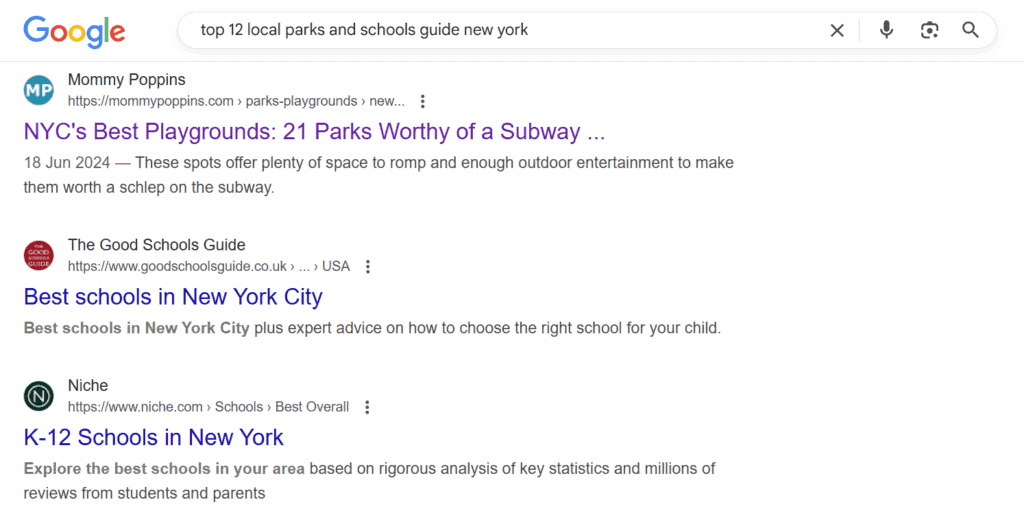
Why it works: Resource pages attract links from nonprofits, community blogs, and local businesses. This helps boost authority and relevance.
Example: A Denver real estate agent creates a “Top 12 Local Parks and Schools Guide.” Schools, parenting blogs, and associations link to the page. This strengthens both authority and traffic.
10. Analyze competitor local links
Finally, review competitor backlinks to find high-value local opportunities. Examine directories, media mentions, and sponsorships, and replicate or improve on them.
Why it works: Competitor analysis provides a roadmap for effective link acquisition in your local ecosystem.
Example: A coffee shop finds a competitor featured on a popular city food blog. Pitching a unique angle secures the link and strengthens local visibility.
Wrap up
Local link building focuses on strategic, geographically targeted authority. High-quality, contextually relevant links from trusted local sources beat generic backlinks.
When done right, link building for local SEO improves Map Pack visibility, organic rankings, and local trust.
Remember to:
- List your business in local directories
- Join chambers of commerce and local associations
- Secure local sponsorships and partnerships
- Pitch local PR and media
- Contribute guest posts to local blogs
- Produce geographically relevant content
- Provide reviews and testimonials
- Collaborate on local community content
- Build hyperlocal resource pages
- Analyze competitor local links
Follow these SEO strategies consistently to give your business an edge over competitors.
And attract qualified local traffic.
Need expert support in scaling local SEO and earning high-quality links? Partner with uSERP. Our team specializes in building authority and visibility.
FAQs
What is local SEO link building?
Local SEO link building means getting local backlinks, often for local SMBs. These help improve visibility in geographically targeted searches.
Why is link building important for local SEO?
Local backlinks signal trust and credibility to Google. This helps your business rank higher in Map Packs and local search results.
Which types of links are best for local SEO?
Get links from:
- Geographically relevant blogs
- Chambers of commerce
- Industry associations
- Local directories
- Local news sites
- Sponsorships
Can competitor analysis help with local link building?
Yes. Look at competitors’ local backlinks. Try to spot high-value directories and partnerships you can replicate or improve.
How long does it take to see results from local link building?
It depends, but most businesses start to see results in local rankings within three to six months.
Are paid local links worth it?
Sponsorships and memberships with reputable local organizations can be valuable. Focus on links that provide both SEO benefits and real community exposure.
